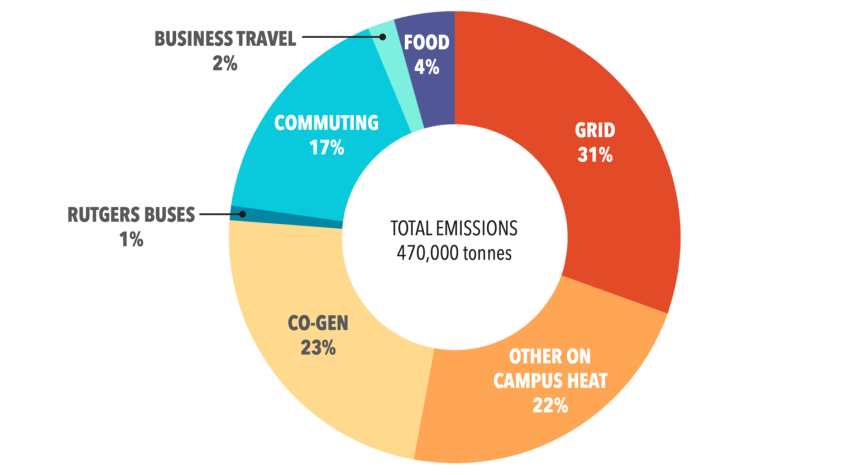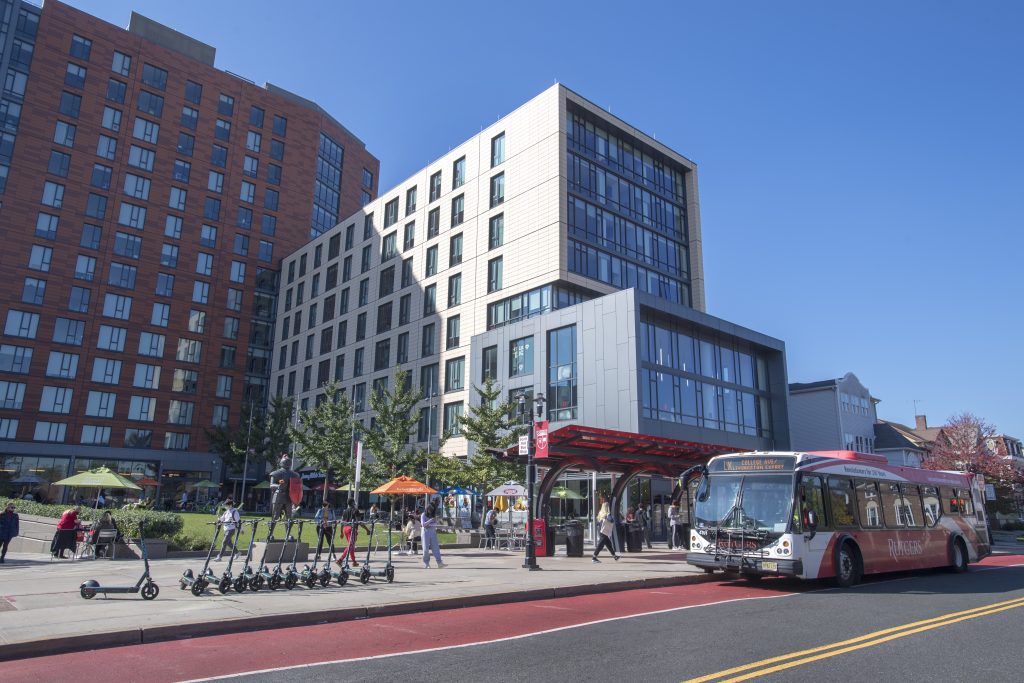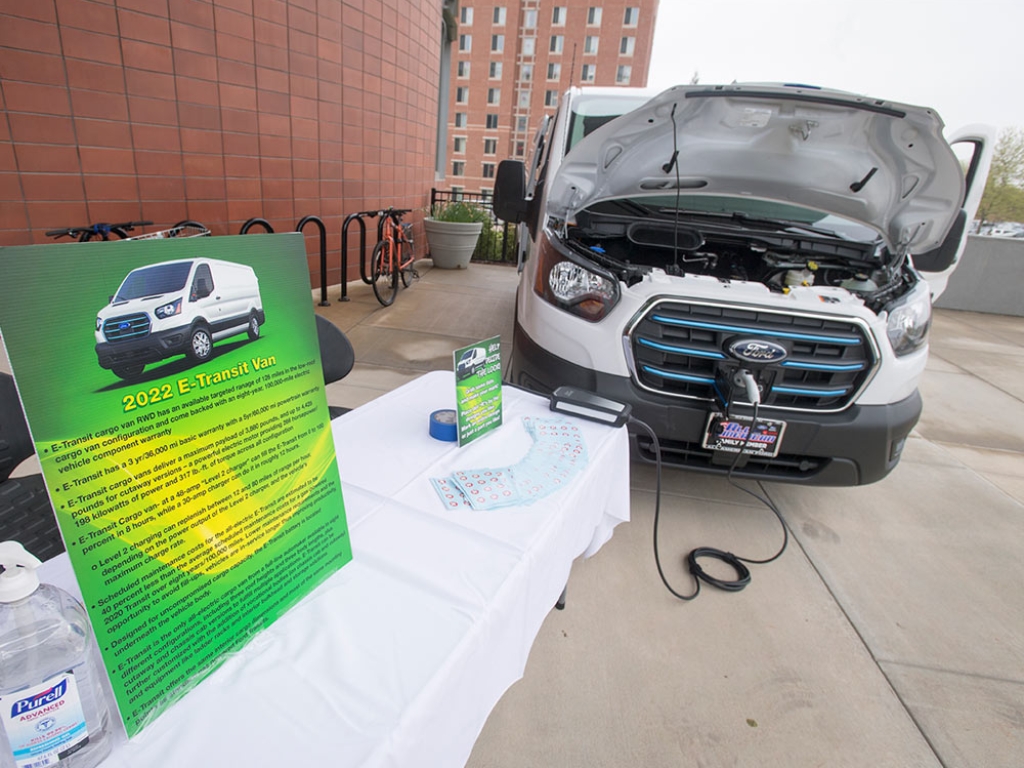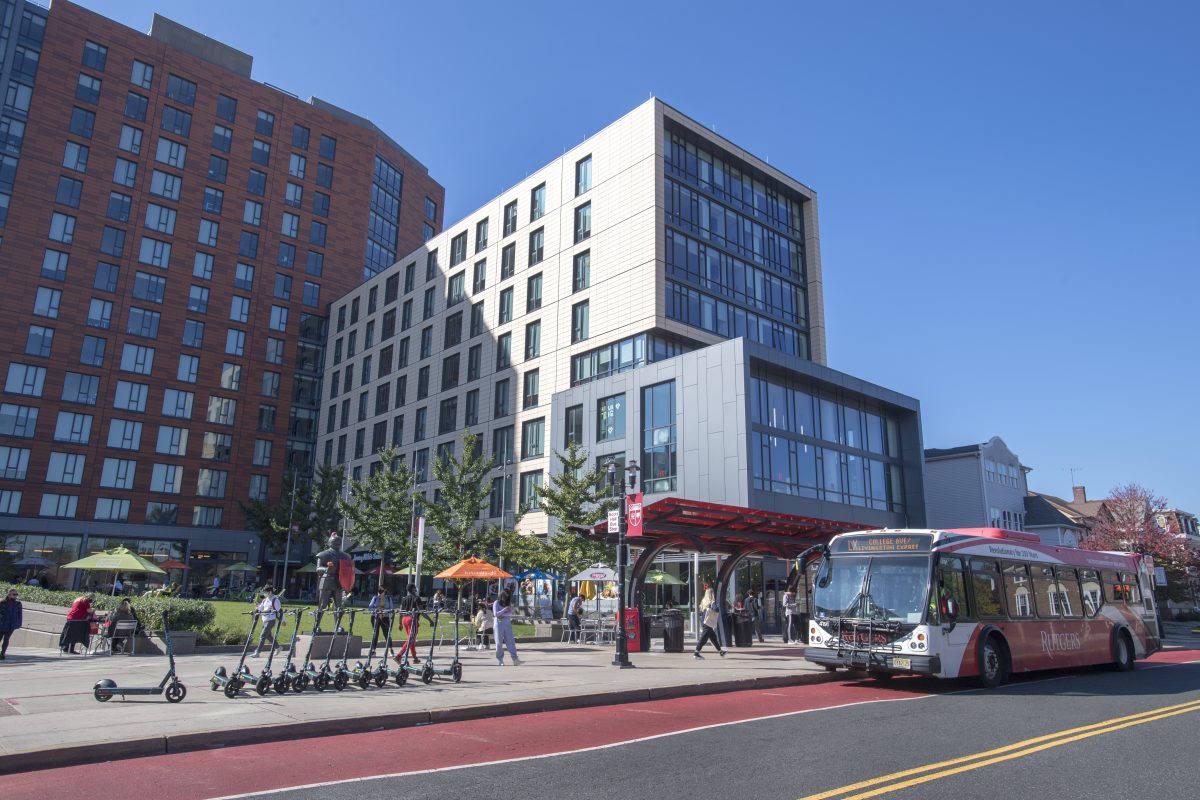By: Samantha Donner
In the US, transportation produces more greenhouse gas emissions than any other sector, including electricity and agriculture. In a study done by the Environmental Protection Agency transportation alone accounts for 27% of all CO2 emissions, which primarily come from cars, trucks, ships, planes, and trains. Road travel, by cars, buses, and trucks, accounts for 74.5% of those transportation emissions. Similarly, in NJ transportation accounted for 28% of emissions in 2020, with 73% of those emissions coming from road travel. The emissions breakdown for Rutgers is a bit different; 20% of our emissions are related to transportation. While this is smaller than the state and national proportions, it is still an important contributor to our overall greenhouse gas emissions.

Since transportation, and especially road travel, is a large contributor to transportation emissions, it is important to understand the what vehicles, systems, and behaviors contribute to transportation emissions broadly and at Rutgers. With this understanding, we can take meaningful action to address climate change
At Rutgers, we have one of the largest bus systems in the country, including municipal and state systems. Many students, faculty, and staff across Camden, Newark, and New Brunswick rely on Rutgers buses to get around campus everyday. It makes sense that our diesel-fueled buses are by far the most visible source of transportation emissions tied to Rutgers. Yet, despite its prominence, our bus–system only accounts for 1% of the total CO2 emissions released into the environment by the campus. An additional 2% comes from business travel and the other 17% is from faculty, staff, and student commutes to campus, which mostly includes gasoline-powered cars with one occupant.

From a health standpoint, it is well worth switching out the diesel buses for electric, since diesel emissions include PM 2.5 and NOx, which can cause or worsen asthma. From a greenhouse gas reduction standpoint, it makes sense to prioritize addressing commuting and business travel habits and systems. Currently, our office and the Transportation Climate Action Group (CAG) are working diligently on both of these fronts.
Rutgers is currently piloting an all-electric van as well as a few hybrid retrofitted buses. To plan their next steps and expand on the Rutgers Climate Action Plan, the Transportation CAG developed a three-year plan based around three categories: electrification, street projects, and travel behavior.

Within electrification, the CAG intends to start the process of electrifying the bus system by conducting a scan of available EV bus technologies, charging, and operational approaches. Secondly, after a substantial amount of research is conducted, the CAG will plan and buildout electric vehicle charging infrastructure.
In street projects, the CAG will make travel more sustainable through methods such as expanding the bicycle rental program, designing and implementing of green streets, and updating the parking program. Beyond this, Rutgers will investigate the efficacy of changes to the University’s parking policy, fee structure, and fee payment options to encourage less drive-alone travel.
Lastly, for travel behavior, the CAG will integrate research, operations, and policy to ensure the best approach to environmental sustainability. Through research, they will quantify greenhouse gases’ impact on campus as well as conduct an annual university-wide travel survey to all of those involved within Rutgers. Operationally, they will investigate options to eliminate the need to travel in environmentally harmful ways, such as reviewing bus routing, changing the class scheduling system, and investigating express routes. Lastly, through policy updates they will expand initiatives for travel alternatives and collaborate with external partnerships to construct more sustainable transportation methods for the university.
To learn more about the Transportation Climate Action Group, we invite you to watch our December 2022 webinar featuring Co-Chair Jon Carnegie.
Sources:












